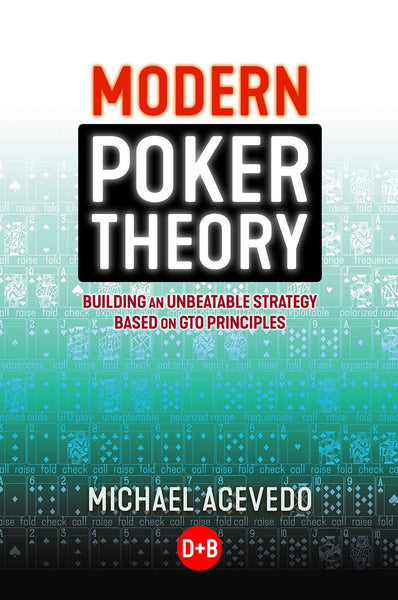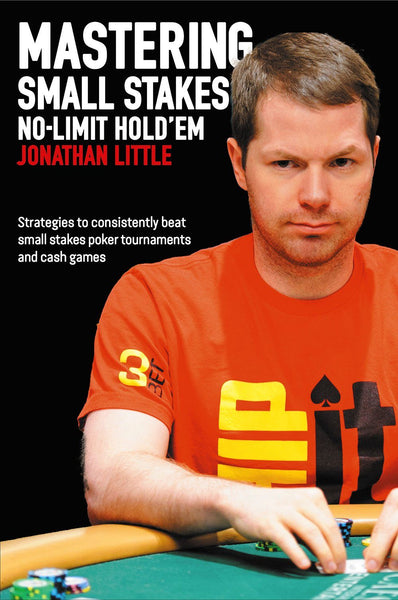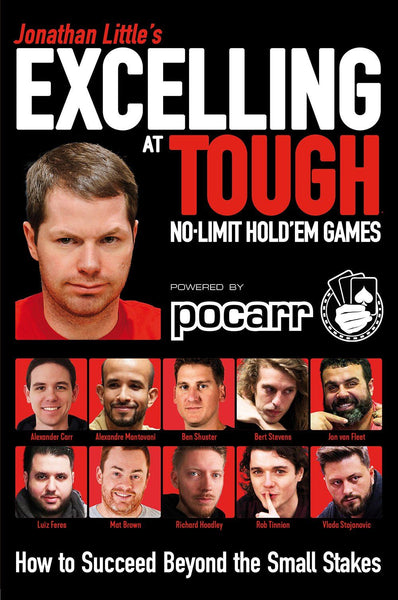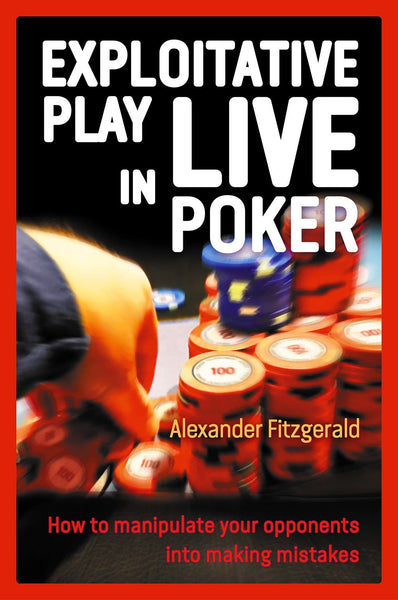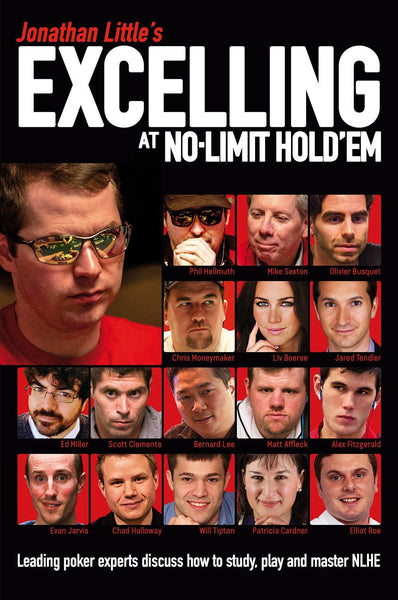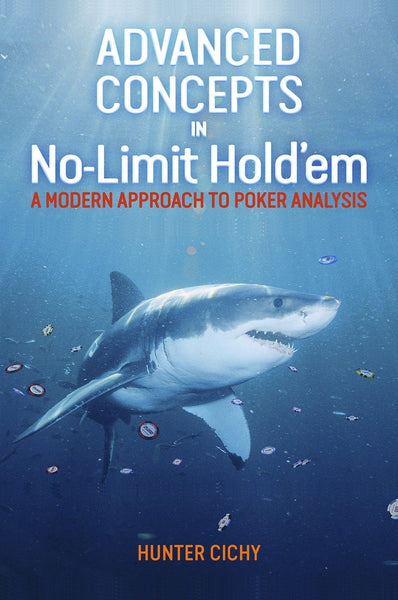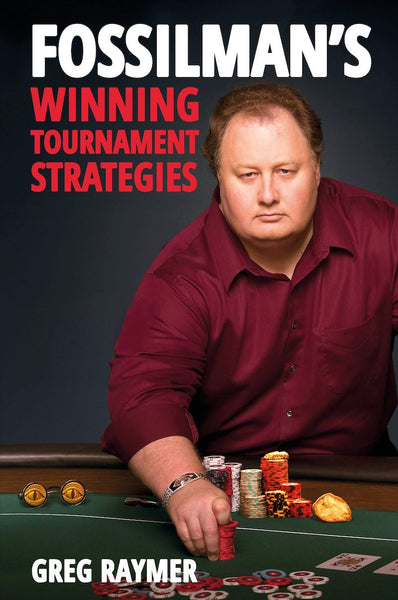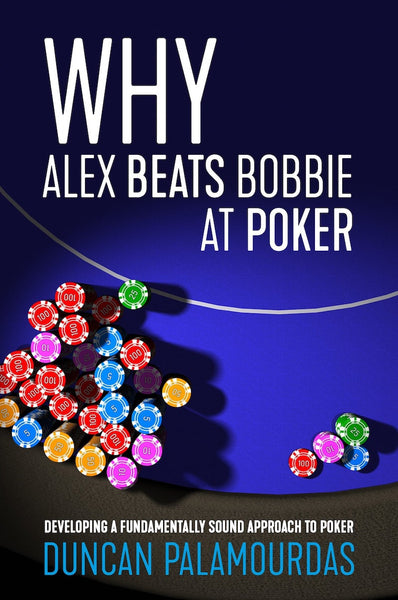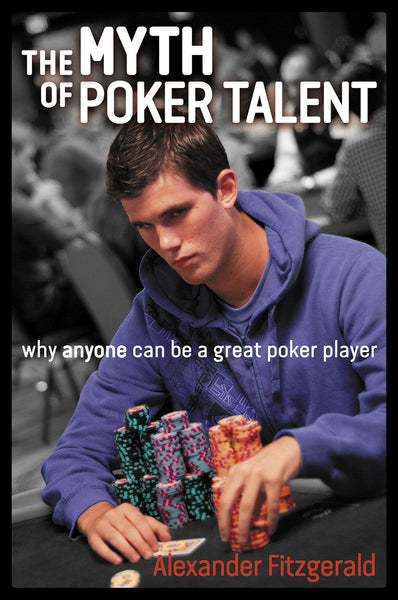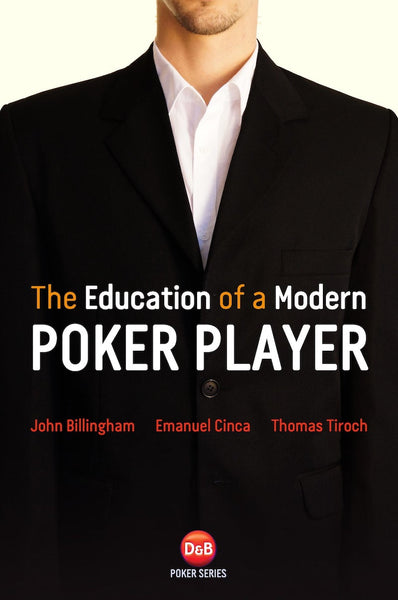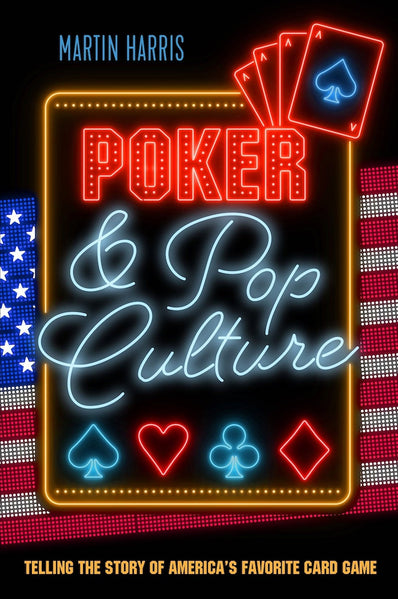NLHE: General
These books generally offer a theoretical discussion of NLHE which can apply to both tournament and cash play
Modern Poker Theory is a comprehensive, rigorous guide to the most important aspects of No-Limit Hold’em. It is based around an in-depth examination of what is meant by game theory optimal play (GTO) and how it can be applied at the table. Understanding GTO is fundamental to being able to make accurate poker decisions and being able to exploit players who don’t. Modern Poker Theory uses modern poker tools to develop a systematic approach to the analysis of GTO. It organizes the ideas and concepts in an intuitive manner that is totally focused to practical applications. Next time you are at a table some of the players will have studied Modern Poker Theory and some won’t. The players who have studied Modern Poker Theory will, without doubt, have a better theoretical and practical understanding of No-Limit Hold’em. They will be the favourites in the game. Make sure you are one of them. Michael Acevedo, one of the world’s leading poker theorists, is a game theory expert who is renowned for creating cutting-edge content for the world’s leading players. The production of Modern Poker Theory is the culmination of many thousands of hours of his research work with the most advanced poker software tools available. It is poker theory for the 21st century.
$29.95
INTRODUCTION TO MASTERING SMALL STAKES NO-LIMIT HOLD’EM There is a lot of money to be made at small stakes no-limit hold’em because… surprise, surprise… most of the players aren’t very good. However, few players understand exactly how to exploit these games. Competent players who generally play larger stakes will, of course, beat them. But they won’t beat them for nearly as much as they ought to. Why? Because they don’t understand how to adjust correctly. Playing a solid, competent, decently aggressive style is a strategy that will be profitable. That said, you should not be content with just beating these games - you should be absolutely crushing them. The trick to doing this is to disregard a lot of “correct” poker and get way out of line at the right times. The methods required are far from obvious or intuitive but in Mastering Small Stakes No-Limit Hold’em Jonathan Little explains them in great detail. Jonathan constructs a basic strategy to crush small stakes games and also identifies the adjustments that need to be made when facing more competent opposition. You need this book if… You frequently play small stakes no-limit hold’em You usually play larger stakes but (especially live) often have to make do with smaller stakes games You play tournaments (such as WSOP events) that feature numerous recreational players
$24.95
Excelling at Tough No-Limit Hold’em Games is a must-have if you have ambitions to move up the stakes. Renowned poker player and leading coach Jonathan Little brings together ten No-Limit experts to provide cutting-edge information for the keen student. All the authors are established coaches for pocarr.com, the prominent backing company that features an immense private training site for backees. Pocarr has helped numerous players climb the poker ladder and succeed at the highest levels in events such as the WCOOP (World Championship of Online Poker) and SCOOP (Spring Championship of Online Poker). Success beyond the lower stakes demands a highly specific skill set. Excelling at Tough No-Limit Hold’em Games will show you how to develop this so you can rise to the top of the game. Topics include: Quick tips for beating the low stakes games Adjusting your preflop strategy When to c-bet (continuation bet) How to defend against c-bets Navigating multi-way pots Basic ICM (Independent Chip Model) and advanced ICM Medium stacked final table strategies Strategies to crush live poker Excelling at Tough No-Limit Hold’em Games is the essential guide for anyone who is serious about wanting to succeed at the high stakes and make a significant income from poker. AUTHORS: Jonathan Little Alex ‘msusyr24’ Carr Alexandre ‘Cavalito’ Mantovani Ben ‘BennyBills’ Shuster Bert ‘girafganger7’ Stevens Jon ‘apestyles’ Van Fleet Luiz ‘AcePheres’ Feres Mat ‘AussieStar’ Brown Richard ‘ChipsFool’ Hoadley Rob Tinnion Vlada ‘Vlada2108’ Stojanović
$27.95
A VIDEO INTRODUCTION BY THE AUTHOR (Click the image) Many poker players can make good decisions at the table with a reasonable frequency. Nevertheless, there are numerous situations where even very experienced players behave in predictable ways. These deeply-ingrained habits lead them to make mistakes. The problem is that these situations won’t often arise at the table by chance – you have to make them happen. Exploitative Play in Live Poker is a ground-breaking work that teaches you how to create the circumstances where your opponents will be likely to blunder and how to exploit them when they do. To achieve this you will need to put to one side starting hand charts, balance and GTO (Game Theory Optimal) play. Instead you will incorporate new concepts that may well place you outside your comfort zone. However, your style will now be forcing the other players at the table outside of their comfort zone and, unlike you, they won’t know how to adapt. Learn how to: Counter the auto-continuation-bettor Develop a powerful donk-betting strategy Use the overbet, the check-raise and the three-barrel effectively As well as being a highly successful player, Alex Fitzgerald runs a poker consultancy that serves more than 1,000 professional poker players in 60 countries. As part of this work, he has very likely trawled through more hand history databases than anyone else. This gives him a unique insight into how players really play, especially when placed under pressure and forced into unfamiliar situations.
$29.95
EXTRAS Bonus Chapter Spreadsheets (20KB, XLS) GO TO HOLD’EMBOOK.COM FOR FULL DETAILS. Excelling at No-Limit Hold’em is a sensation in poker publishing. Renowned poker professional and author Jonathan Little brings together 17 of the greatest no-limit experts in the world to discuss all aspects of the game. These experts include superstars such as Phil Hellmuth, Chris Moneymaker, Mike Sexton and Jared Tendler. In Part 1 strategies are analysed for topics such as understanding the fundamentals, satellite play, lower-buy in events, analysing tells and moving up in stakes Part 2 sees a thorough technical breakdown of the game including sections on range analysis, game theory optimal play, short stack strategies, value betting and final table play. As any serious poker will confirm, the technical side is only half the battle and so Part 3 deals with mental toughness, psychology and understanding tilt. Excelling at No-Limit Hold‘em provides all the tools that an aspiring player needs to understand no-limit hold‘em. It is a must buy for anyone who is serious about wanting to improve their poker. CHAPTER DETAILS Chad Holloway - The post-boom evolution in poker Evan Jarvis - Equity, position and aggression Chris Moneymaker - Lower buy-in strategies Ed Miller – Moving up in stakes Scott Clements – General tournament concepts Matt Affleck - Advanced tournament strategies Bernard Lee – Satellite play Zachary Elwood - Understanding tells Alex Fitzgerald – In-depth range analysis Phil Hellmuth/Liv Boeree – Short stack strategies Jonathan Little - Value betting and Final table play Olivier Busquet - Heads-up play Will Tipton – Game theory optimal play Patricia Cardner – Mental toughness Jared Tendler - Eliminating tilt Elliot Roe - Poker hypnotherapy Mike Sexton – Great plays from great players
$27.95
No Limit Hold’em is an extremely complex game that is difficult to learn and even more difficult to teach. Many authors have produced works on this topic which are either too simplistic or far too complex to be of any practical use. Hunter Cichy has a unique ability to present advanced concepts in a manner that any committed student can understand and implement. In this cutting-edge work, Hunter outlines a straightforward, no-nonsense approach to poker analysis. His philosophy is built around the five key elements of poker theory. pot odds implied odds pot equity fold equity minimum defense frequency. Hunter examines each of these topics in depth and explains how they interact. By combining optimal opening ranges with clear explanations of math and game theory, Hunter presents a powerful strategy that is easy to implement and difficult to exploit. A careful study of the approach outlined in Advanced Concepts in No Limit Hold‘em will undoubtedly take your game to a higher level.
$19.95
FossilMan’s Winning Tournament Strategies is the ultimate guide to practical tournament play. Greg “FossilMan” Raymer, winner of the WSOP Main Event in 2004, explains everything you need to know to become a successful tournament player. Raymer is not only a big winner at the tables, he also has a unique ability to explain difficult concepts in clear and simple language. Raymer simplfies the learning process by breaking down the complex subject of tournament strategy into the key areas. Chapters on strategy include: the Independent Chip Model (ICM), game theory, poker maths and pot odds, correct bet-sizing, playing the big stack and playing the short stack. However, Raymer does not focus merely on the correct technical aspects of standard NL tournament play. He also discusses many other important tournament formats that often confuse players. These include: how strategy changes in satellite and rebuy tournaments- how to play heads-up events and other uncommon formats and the one everyone wants to know about - how to play the Main Event.
$19.95
A VIDEO CHAT WITH THE AUTHOR (Click the image) Meet Alex and Bobbie, who both like to play poker. Alex is a professional poker player who plays for a living and is a solid long-term winner. Bobbie is a recreational player who plays a decent enough game but mainly wants to have a good time. If you play poker regularly you will meet thousands of players like Bobbie in your games and very few like Alex. Of course one would expect that, in the long run, Alex will perform better than Bobbie. But have you ever wondered EXACTLY what it is that Alex understands better and does differently to Bobbie? This is a rather complex question that does not have a simple answer. In this book, UCLA maths professor Duncan Palamourdas addresses this question via a journey through human psychology, game theory, easy-to-understand mathematics and even philosophy. Topics include: Understanding the instinctive but unprofitable tendencies of inexperienced players. How to identify what a mistake actually is in poker – and how to exploit it. Why poker does not revolve around bluffing. The great impact of variance in poker and how to account for it. How to develop a consistent approach that allows you to play like Alex and not Bobbie. Duncan Palamourdas specializes in the mathematics of poker and poker education. His poker classes at UCLA always fill up early and have long waiting lists. He is also an author at Upswing Poker, Poker News, Card Player and Winning Network. Despite his impressive academic credentials, Duncan’s popularity is a product of his love for simple language and metaphors. Profitable poker play essentially revolves around correct risk-reward optimization. This is a complex topic and Duncan’s great strength is that he explains it in simple terms without resorting to technical jargon.
$19.95
EXTRAS GRAPHICS FROM THE BOOK The Myth of Poker Talent is a unique book and is the culmination of renowned poker trainer Alex Fitzgerald’s work with over 1000 students over a 10 year period. Alex has discovered what makes a winning poker player and here’s the good news… It has nothing to do with poker talent. If you want to excel at the game you’ll need to buy this book, study Alex’s method and work hard – but you don’t need talent. Alex’s method focuses on understanding generic poker situations and not specific hands. As a highly experienced teacher, he expresses his ideas in simple, easy-to-understand language. The Myth of Poker Talent will teach you: A “model of poker” built from scratch An understanding of every poker tool Why much of what experienced players think they know is actually wrong. … and much, much more.
$24.95
A VIDEO INTRODUCTION BY THE AUTHOR (Click the image) How hard are you prepared to work to improve your No Limit Hold’em? The Education of a Modern Poker Player documents the efforts of a serious amateur as he pursues his ambition of rising through the stakes from NL10 ($10 game) to NL100 ($100 game) and beyond. John Billingham is an English maths professor, and a keen player of games. In the summer of 2009 he discovered online poker and was hooked. A year later he decided to trick a couple of impressionable young poker pros, Austrian Thomas Tiroch (TwiceT) and Romanian Emanuel Cinca (EmanuelC16), into teaching him how to play poker on the promise of writing a book with them. Little did he know what he was letting himself in for. The Education of a Modern Poker Player is the product of JB’s cunning plan, and documents his progress from being unable to beat NL10 to establishing himself on NL100. Over the course of this entertaining book, TT and Manu explain how to beat these small stakes games, aided and abetted by JB, and illustrate all the important concepts with real example hands. There is a particular focus on Fast Fold Games, such as Rush and Zoom, in which JB eventually became a specialist, and practical explanations of how to take advantage of weak players in this format. The Education of a Modern Poker Player includes: An extensive set of real example hands Practical advice on strategies to beat 6max No Limit Hold’em A basic strategy for Fixed Limit Five Card Draw Clear explanations of the Mathematics of No Limit Hold’em Specialist advice on Fast Fold Games (e.g. Rush and Zoom)
$9.99
A VIDEO INTRODUCTION BY THE AUTHOR (Click the image) Introduced shortly after the United States declared its independence, poker’s growth and development has paralleled that of America itself. As a gambling game with mass appeal, poker has been played by presidents and peasants, at kitchen tables and final tables, for matchsticks and millions. First came the hands, then came the stories – some true, some pure bluffs, and many in between. In Poker & Pop Culture: Telling the Story of America’s Favorite Card Game, Martin Harris shares these stories while chronicling poker’s progress from 19th-century steamboats and saloons to 21st-century virtual tables online, including: Poker on the Mississippi Poker in the Movies Poker in the Old West Poker on the Newsstand Poker in the Civil War Poker in Literature Poker on the Bookshelf Poker in Music Poker in the White House Poker on Television Poker During Wartime Poker on the Computer From Mark Twain to “Dogs Playing Poker” to W.C. Fields to John Wayne to A Streetcar Named Desire to the Cold War to Kenny Rogers to ESPN to Star Trek: The Next Generation and beyond, Poker & Pop Culture provides a comprehensive survey of cultural productions in which poker is of thematic importance, showing how the game’s portrayal in the mainstream has increased poker’s relevance to American history and shaped the way we think about the game and its significance.
$9.99

